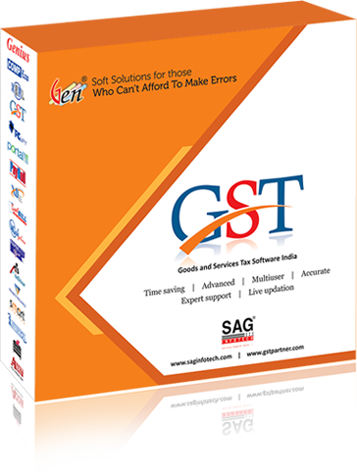How will GST impact on the insurance premium?
Is there GST on bank charges?
Read this article to clear all your doubts.
The old tax rate on financial services such as banking charges and insurance was 15%, which has been replaced by 18% after the implementation of GST in the country. As the result of the increased tax rate, both services got more expensive in the post-GST era. Whereas the premiums for all types of insurances have gone up, the charges for common banking services have also been revised.
Impact of GST on Insurance
The old tax rate on basic insurance services was 15 per cent, comprising of 14% service tax, .5% Swachh Bharat Cess, and .5% Krishi Kalyan Cess. After GST, the tax rate will be levied at the standard rate of 18% on all types of insurance policies, including life insurance, health insurance and general insurance.
In case of normal insurance plans such as term insurance and health insurance, the previous tax rate of 15% has been replaced by the GST rate of 18%, which will certainly increase the premium cost making it costlier for people to buy insurances.
For ULIPs (Life insurance) policies, where insurance is usually integrated with some kind of investment, the increased GST is applicable only to the insurance amount and not on the investment part. For example, if your gross premium amount is Rs.1000, of which Rs. 400 is the investment and Rs. 600 is the insurance premium; the 18% GST would be levied only on Rs. 600.
The policies associated with single premium annuity are liable to pay 10% of the premium amount as GST.
For endowment policies, GST will be levied at the standard rate of 18% on 25 per cent of the first year premium and 12.5 per cent on the subsequent premium of following years. So, if your endowment policy has an annual premium of Rs. 1000, then 18% GST will be applicable on Rs. 250 (25% of the premium amount) for the first year, and the same GST rate on Rs. 125 (12.5%) for subsequent premiums.
In short, the first year premium will be liable for 4.50% tax as opposed to existing 3.75% rate, while subsequent annual premiums will be taxed at 2.25%.
Recommended Post: GST impact on Indian Consumer
If a life insurance policy is only for risk cover and doesn’t involve any savings or investment, the entire premium is liable for 18% GST.
Other insurance services such as fire insurance, theft insurance, vehicle insurance, marine insurance, etc are also under the same 18% GST rate.
As for the impacts of GST on insurance policies, the premium amounts for policyholders have increased due to the increased tax rate. This is applicable to both existing and new taxpayers. So, they will now have to pay tax at 18% rate on all their life cover premiums.
Insurers, however, are not affected very much by the introduction of GST as they continue to pass their tax liabilities on to the consumers.
Corporate policyholders having general insurance are eligible for input tax credit on the tax paid on insurance premiums. Life and health insurance holders, however, are not liable to claim ITC on premiums for insurances being used for personal purposes. This is also true for corporate policyholders having life/health insurance for their workers.
Note: Life insurance schemes by Government are exempt from GST.
Impact of GST on Bank Service Charges
The old service tax rate of 15% on banking services is now replaced with 18% GST. As a result, banking has become costlier for the customers.
The old tax rate of 15% on interbank ATM transactions and branch transactions has been replaced by 18% GST.
All other banking services like GST on bank charges that were previously taxable under service tax are now taxable under the revised rate of GST. Banks and finance companies are allowed to pass on the tax liabilities to their customers.
Intra-branch services will also be taxable under GST at the same standard rate, however, ITC on bank charges under GST will be available on the same.
The immediate impact of GST on banks is in the form of an increase in administrative and compliance work, which leads to increase in operational costs of these banking organizations.
Business/corporate consumers are able to claim ITC on the taxes paid by them for official (business-related) banking services.
To conclude, GST has increased the operating costs for banking and financial organizations. Policyholders are now paying a higher premium on all types of insurances.






